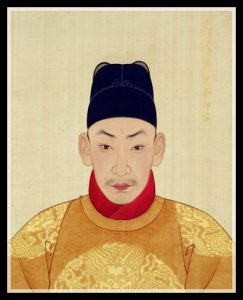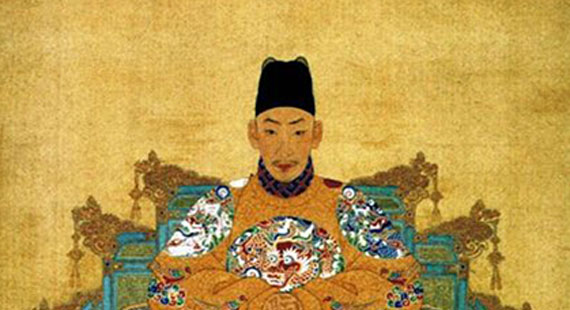Last time, in History’s Nutcases, we covered Caligula. This time in the series, we’re taking a look at another insane ruler from a completely different century, on the other side of the world. His name was Zhu Houzhao. He was the Ming Dynasty Emperor from 1505 to 1521, right around the time that the Renaissance was starting to bloom in Europe. He was contemporaries with the likes of Henry VIII, Leonardo Da Vinci, Michelangelo, and Martin Luther. Houzhao was the eldest song of the Hongzhi Emperor, and his reign means “Right Virtue”, or “Rectification of Virtue”, which is a little weird considering how it went, but whatever.
Zhu Houzhao was made Emperor of China when he was the ripe old age of fourteen. He was an excellent study of Confucian literature, and most of the ministers thought he would grow into a fine and benevolent emperor. Boy, were they wrong!
Despite all his good Confucian teaching, and all the best intentions of all his advisers and ministers, The Zhengde Emperor had very little interest in actually ruling. What he was interested in, however, was women. At one time, his personal harem was so large that many of the women starved to death from lack of supplies. And, what began as a zoo outside the Forbidden City in Beijing, called “Bao Fang”, or “The Leapord’s Chamber”, which used to house a lot of exotic animals, was converted to house women for the Emperor’s own amusement. And as if all of that didn’t sate his ridiculous appetite, he frequented brothels in the city as well.

PHOTO: wikipedia.org
Oh, but that’s not all. Oh, no! Not only was the young Emperor obsessed with women, he was also frankly a little thick and irresponsible. He took up the luxurious lifestyle he thought he deserved. Often, he’d be out hunting tigers for weeks at a time, and one time he was so badly mauled that he couldn’t appear in court for a month. Beyond that, one time, he thought it a good idea to store gunpowder in his palace during the lantern festival. What you would expect to happen most definitely did. He caught his palace on fire, and burned it to the ground. He would leave the Forbidden City for months at a time, living outside of it, refusing to come in for court meetings. He payed very little attention to court matters, wouldn’t see any of his ministers, and ignored all their petitions. He just wasn’t about that politician’s life, man.
In time, the Emperor became notorious across the empire for his childish behavior. There are accounts of him setting up a fake commercial district outside of his palace, sort of like a living museum, and ordered his entire palace to staff it. They were forced to dress up as merchants and commoners, just so the Emperor himself could play at being a commoner and wander around, shopping, with tons of money… like the commoners did, right? Anyone who didn’t comply would be punished and swiftly fired from their position in court.
On top of all that, Houzhao also fancied himself a general. In 1517, he led an army, several thousand strong, to fight off raiding expeditions. He even created an alter-ego to do it, so he could completely relinquish his imperial duties and not be bothered by his divine right, or something like that. Because, you know, being Emperor is such a bother. He fought off the Mongols in that year, defeating them in major battle. In 1519, he led an army to vanquish a revolt led by a rival prince. When he finally arrived on the scene of the battle, though, the revolt had already been vanquished. He was so disappointed that his adviser suggested that they set the prince free again and recapture him for sport!
Zhu Houzhao died just fourteen years after he’d been made Emperor, in 1521, at the age of 29. The story goes that in 1520, he was drinking on a boat in a lake and fell off the boat and almost drowned. Even though he survived falling in, he wouldn’t for long. He’d contracted some illness from the water. None of his several children survived childhood, so he was succeeded by his cousin, Zhu Houcong. His tomb is located in Kangling, at the Ming Dynasty Tombs.
It must be said for the Zengde Emperor, that even in spite of all that, he somehow managed to be a good administrator for a short amount of time. When he was in court, he made competent decisions. Under his rule, China’s economy grew and the people, generally, prospered. Apparently, a bit of irresponsibility and a healthy dose of childish insanity is okay if you’re an emperor and you’ve got a bunch of eunuchs to run things for you.


